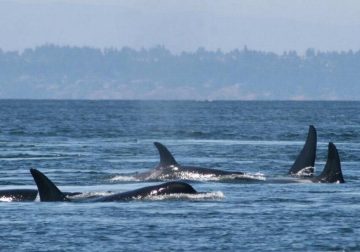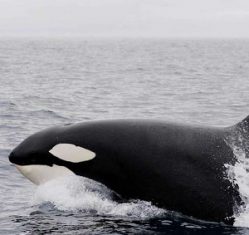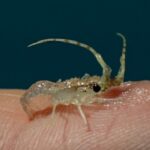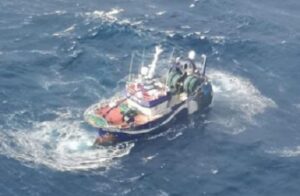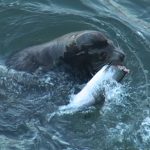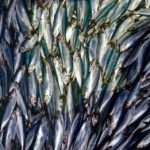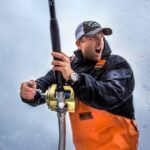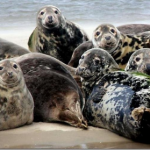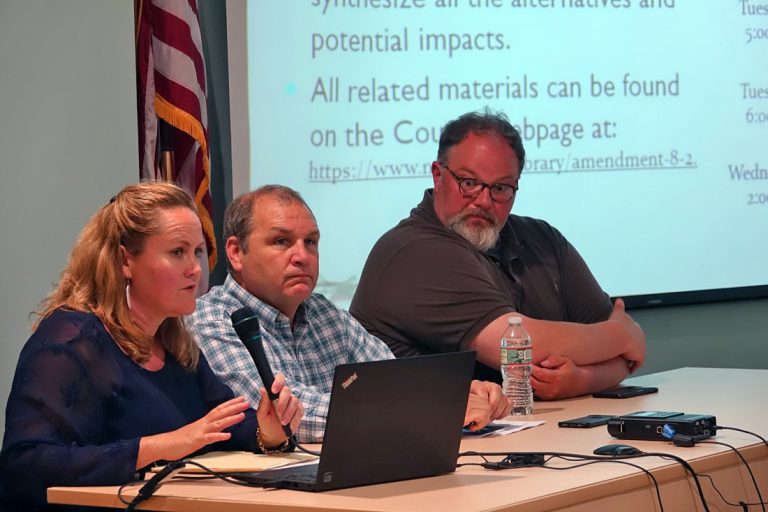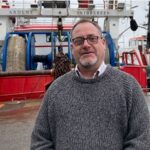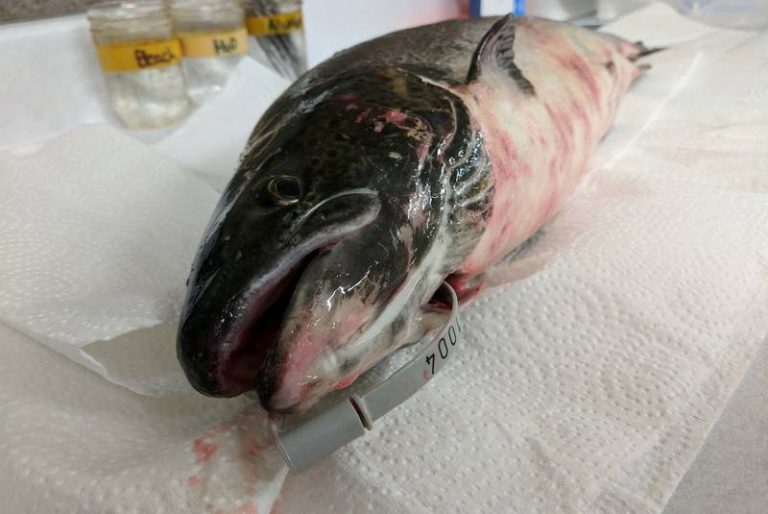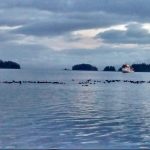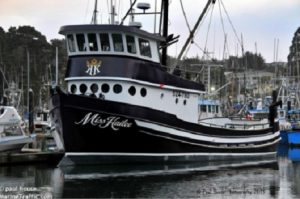Category Archives: Pacific
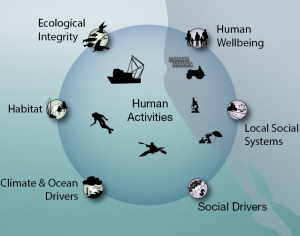
West Coast Waters Grow More Productive with Shift Toward Cooler Conditions
The ocean off the West Coast is shifting from several years of unusually warm conditions marked by the marine heat wave known as the “warm blob,” toward a cooler and more productive regime that may boost salmon returns and populations of other ocean predators, though it is too early to say for certain, a new NOAA Fisheries report says. >click to read<09:55
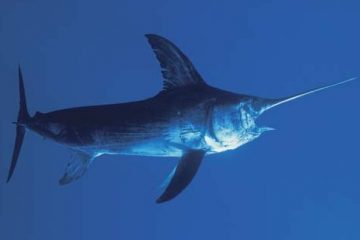
A California battle over swordfish — and gill nets
Conservationists are pushing a $1 million effort this summer to change the way swordfish are caught off the California coast by phasing out the use of gill nets. They are the mile-long nylon nets used to catch swordfish but that also ensnare other species, causing conservation organizations to seek an end to their use. Commercial fishermen can use gill nets now, with a drift gill net shark and swordfish permit from the Department of Fish and Wildlife. But a new California law will officially ban gill nets as of January 2023.,,, Organizations representing commercial fishermen opposed SB 1017 by state Sen. Ben Allen (D-Santa Monica), the bill that became the new law phasing out the use of gill nets. >click to read<17:08
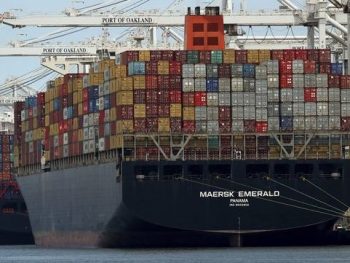
Whales are facing a deadly threat along West Coast: container ships
One day last May, a container ship entered the San Francisco Bay with extra cargo. A 45-foot-long dead female fin whale was draped across the ship’s bow. The impact with the ship had broken her back, ruptured her organs and caused severe internal bleeding. Ten whale deaths were attributed to ship strikes in 2018 – the highest number on record in California since NOAA Fisheries began tracking in 1982. The mortality rate represents an enormous increase from the average 3.4 ship strike victims recorded annually in the five previous years. Five of the 10 whales that died with boat collision injuries in 2018 were endangered or threatened fin, blue and humpback whales. >click to read<15:29
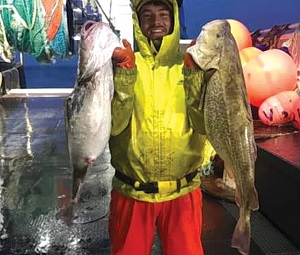
Report From the Grounds
The bitter blast of winter, ice on salt water and nets straining with cod — a world few of us will witness. It’s everyday sight for Newport fisherman Kelly Bennett, who has spent the greater part of the last decade traveling to Alaska to work on Newport trawlers plying the northern waters for pollock, cod and groundfish. Working aboard the Aleutian Challenger, Bennett is away for up to four months at a time, toiling in a fishery called joint venture, where he — amazingly — doesn’t have to handle fish, except the few that fall out of the net. >click to read<19:00
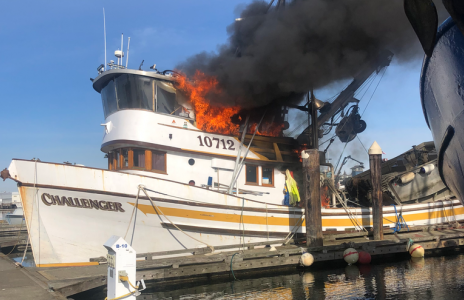
Fire engulfs fishing boat at Squalicum Harbor
Fire heavily damaged a commercial fishing boat while it was docked at Squalicum Harbor Saturday morning. >click to read< A 58-foot commercial fishing vessel tied up at Squalicum Harbor suffered heavy damage and created a plume of black smoke visible through much of Bellingham Saturday morning after catching fire. Photo’s, Video >click to read<09:53

91st annual Blessing of the Fleet, Sunday, March 17th, Fishermen’s Terminal, Seattle
The 91st annual Blessing of the Fleet has been scheduled for Sunday, March 17, 2019 at 2:00 pm at the Fishermen’s Memorial site at Fishermen’s Terminal in Seattle, Washington. Originated by the late Pastor O.L. Haavik of Ballard First Lutheran Church 91 years ago, the service will be conducted by Pastor Erik R. Wilson Weiberg and Pastor Elise Scott, both of Ballard First Lutheran Church. We will offer thanks to God for the fishing community, remembering the risks they take each day to provide seafood for our tables. More details, >click to read<17:40
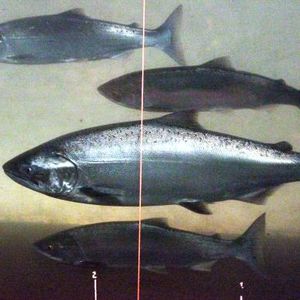
Designers of failed toxic waste dam to work on one taller than the Washington Monument. What would the salmon say?
The company that wants to mine copper and gold in southwest Alaska at the site of the world’s largest sockeye salmon fishery hired a firm to design mine waste pond dams that was behind one of the worst mining disasters in Canadian history. The KnightPiésold firm designed a dam that failed in 2014 in Mount Polley, British Columbia,,,, At least 50 mine dams have failed worldwide in the last decade, including a dam that collapsed in Brazil in January, killing at least 186 people; 122 people are still missing. Alaskan fisherman Mike Fricerro told the Alaska Dispatch News, “Modern history has shown us that (catastrophic dam failures) are more likely than they want us to think.” >click to read<12:28
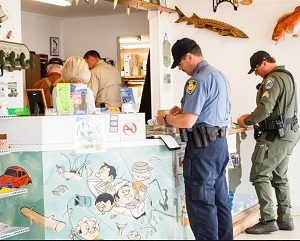
Halibut poachers sentenced to jail time
Robert and David Gudgell, former fishing boat operators for Pacific Salmon Charters, will need to update their resumes. At a sentencing hearing on Wednesday in South District Court, Judge Nancy McAllister delivered a stinging rebuke to the brothers, who were recently convicted of numerous halibut-poaching charges. “I really hope your selfish actions do not taint the reputation of the other fishermen in this area,” McAllister said before sentencing the Gudgells to jail time, hefty fees, probation and a one-year ban on being on boats. >Click to read<10:01
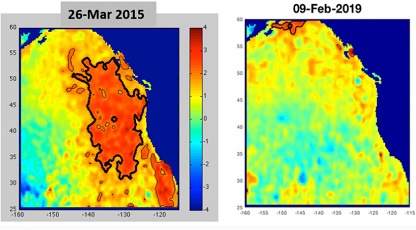
Cooling California Current could mean good news for fisheries, ecosystems
Ocean currents off the Northern California coast are cooling down — potentially good news for the region’s fisheries and ecosystems, battered in recent years by warm currents that have triggered a range of disruptions, from faltering salmon runs to a devastated kelp forest and abalone populations. In a report on the California Current, NOAA scientists last week said that cooler water has resulted in improved condition of zooplankton – the foundation of the ocean’s food chain – greater juvenile salmon returns, and bigger anchovy schools, a boon to larger fish and whales. On the other hand, scientists said,,, >click to read<20:24
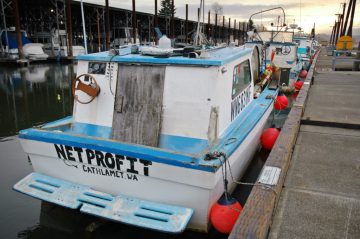
Columbia River Reforms – Change to gillnet policy stokes sport fishing anger
In a vote that has angered the sport fishing community, the Washington Fish and Wildlife Commission (WFWC) has voted to alter the Columbia River Salmon Policy 3620, known as the Columbia River Reforms, concerning the use of gillnets in the main stem Columbia River. The vote was held on March 2 in Spokane. The changes to the policy follow a five-year review, and recommendations from a joint-state task force that is composed of three commissioners from both states.,,, Hobe Kytr of Salmon For All, a commercial fishing advocacy group, sees the action as appropriate. “The policy that was enacted at the request of former Oregon Governor John Kitzaber has been a failure from the very beginning,” said Kytr. “It was a matter of putting a policy in place and then trying to find the scientific facts to back up the policy.” >click to read<11:30
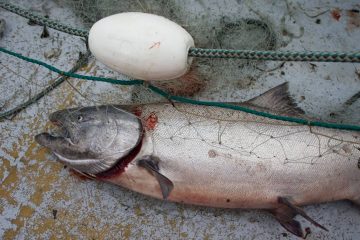
County board voices opposition to bill to end non-tribal gillnetting in Washington
Wahkiakum County commissioners on Tuesday agreed to contact the state senate to oppose legislation that would outlaw non-tribal gillnet commercial fisheries in Washington Jan. 1, 2023, and establish a buyout program for retiring licenses by Dec. 31, 2022. Proponents say gillnets are non-selective gear that ensnare wild and endangered salmon and with other species, they are not a good management, and they adversely impact the recreational fishing industry. Senate Bill 5617 would also establish a three-tier program to buy out gillnetters’ licenses from willing sellers.,,, >Click to read<11:01
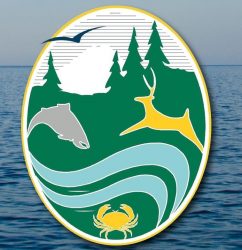
Options presented for Washington’s ocean salmon fisheries based on predictions
Fish managers released their options for Washington’s ocean salmon fisheries that reflect recent concerns over projected chinook stocks and optimism about improved returns of coho. Three options for ocean salmon fisheries were approved Tuesday for public review by the Pacific Fishery Management Council (PFMC). Kyle Adicks, salmon fisheries policy lead for the Washington Department of Fish and Wildlife says that the three alternatives are designed to protect the low numbers of chinook expected to return to the Columbia River and Washington’s ocean waters. >click to read<13:00
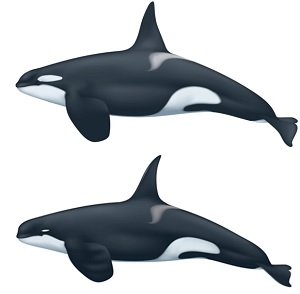
TYPE D – Mysterious killer whales seen off the coast of Chile could be a new species
Deep beneath some of the world’s roughest seas live a mysterious species of killer whales that look very different from other orcas. For the first time after it was spotted off the coast of Chile, the killer whale, which could potentially be a new species altogether, is to be studied by an international team of scientists.,,, Bob Pitman, a marine ecologist who was part of the team that spotted the whales, said that Type D killer whales could be the largest undescribed animal left on the planet,,,, >click to read<14:21

The Columbia River Reform Plan – Letter: Thanks for reporting facts
After reading the letter “Don’t support gillnetting” (The Daily Astorian, March 7), I felt compelled to offer a factual response.,, The statement that the Columbia River endorsement fee on recreational licenses was intended to buy out or eliminate gillnetters is simply false. The money has been used for overall projected improvements to fisheries, including researching new off-channel select fishing areas (none were found viable), testing alternative gear (none proved to be better than gillnets), research and monitoring commercial fisheries, additional hatchery production to benefit both recreational and commercial fisheries, and commercial and recreational fisheries law enforcement. I am fairly confident most of the hardworking blue-collar commercial fishing families in the lower Columbia don’t worry much about the economy in Vancouver, Washington, where the author lives, but they sure care about their own, and so does The Daily Astorian. >click to read<10:43
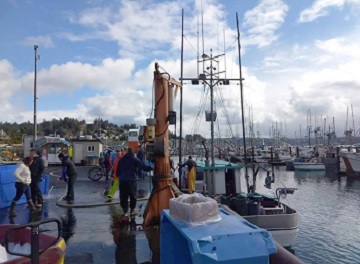
Port of Newport may tie moorage increase to upgrades
Faced with a growing stack of infrastructure improvements needed to keep the Port of Newport operational, its management is floating a plan that would tie an increase in commercial moorage directly to electrical upgrades on Port Dock 5 and Port Dock 7. Rates would increase each of three years under a proposal for which the port is now seeking feedback. The money would be a sure source of construction funds rather than the port relying on grants, which are questionable in their availability and how they can be used, said Director of Operations Aaron Bretz. “Other ports are wrestling with the same thing — they’re trying to raise rates and not succeeding and they have these infrastructure needs,” Bretz said. >click to read<18:02
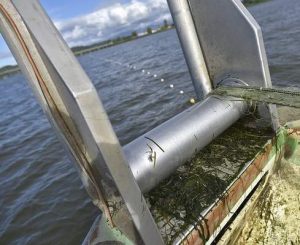
A major policy change – Washington State will allow gillnets in lower Columbia this fall
The Washington Fish and Wildlife Commission has agreed to allow the use of gillnets during the fall salmon fishery on the lower Columbia River while state fishery managers work with their Oregon counterparts to develop a joint, long-term policy for shared waters. The move is a major change in policy. Washington policy, approved in 2013, intended for the commercial fishery to have completed a transition from gillnets to alternative gear this year and be relocated away from mainstem Columbia River areas. However, the use of alternative gear has not yet been refined and the off-channel areas have been determined to be unsuitable. >click to read<10:05
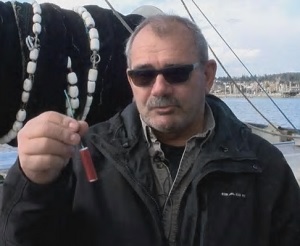
BC Fisherman touches off a “firecracker”, Media blows it’s mind!
Federal fishery officials are investigating after a video was posted to Facebook featuring a man throwing a small explosive toward a group of sea lions in the Strait of Georgia. The clip displays commercial fisherman, Allan Marsden lighting the fuse of a ‘bear banger’ — a small explosive device used to scare bears or other animals — before tossing it into the water. Marsden says he used the bear banger to disperse the sea lions — not to kill them. (If you want to see killing, look at the comments at the article. They’re killing me! lol! ) >Video, click to read<14:09
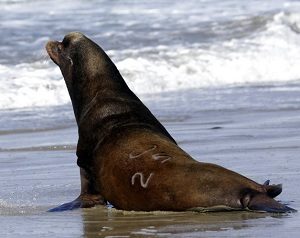
Scientists warn of ecosystem consequences for proposed B.C. seal hunt
A British Columbia group wants to revive the seal and sea lion hunt on the west coast, provoking a debate about the controversial practice and prompting scientists to warn of consequences for the ecosystem.,,, But Dr. Peter Ross of the Vancouver Aquarium says there’s no data to suggest a cull would help salmon species. “Personally and professionally, I don’t think it would make an ounce of difference,” he said. (a deep thinker!),,, Andrew Trites, who oversees the marine mammal research unit at the University of British Columbia, said perceptions about rising seal and sea lion populations are skewed. >click to read<09:43
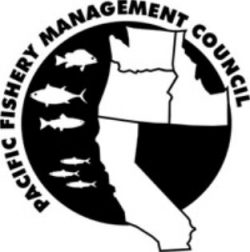
Reposted: Pacific Fishery Management Council meetng in Vancouver, WA, March 6-12, 2019
The Pacific Fishery Management Council (Council) and its advisory bodies will meet March 6-12, 2019 in Vancouver, Washington at the Hilton Vancouver Washington, 301 W. Sixth Street, Vancouver, WA 98660. Agenda and Meeting Notice, >click to read< Listen to the March Council meeting live <click to listen<16:20
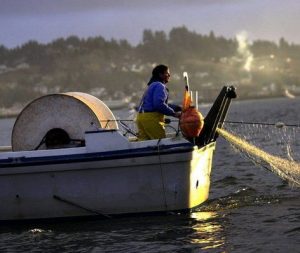
In major reversal, WA agrees to gillnets on Columbia in 2019
The Washington Fish and Wildlife Commission agreed last week to allow the use of gillnets during the fall salmon fishery on the Lower Columbia River while state fishery managers work with Oregon counterparts to develop a joint long-term policy for shared waters. The commission, appointed by the governor to set policy for the Washington Department of Fish and Wildlife, took that action and received public comments on proposed hunting seasons for 2019-21 during a public meeting March 1-2 in Spokane. The commission’s action to extend the use of gillnets was one of a number of recommendations for Columbia River fisheries developed by a joint committee with members of the Oregon Fish and Wildlife Commission. Oregon’s full commission will also consider the recommendations when it meets later this month. >click to read<Reposted from yesterday 15:53
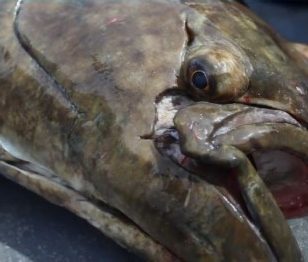
Halibut trial verdict: Gudgell brothers convicted of 18 fishing violations
After about three hours of deliberation, a six-person jury on Feb. 28 convicted charter boat operators Robert and David Gudgell of a total of 18 of 29 alleged fishing violations. The decision came after an eight-day trial in South District Court, in which more than 20 witnesses testified. The brothers work for Pacific Salmon Charters, an Ilwaco charter company owned by their parents, Milt and Sarah Gudgell. >click to read<10:47
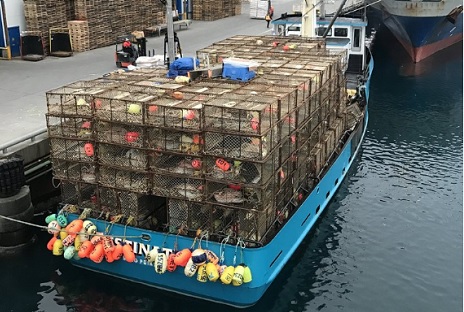
Overloading, heavy ice and an open hatch: Coast Guard details what sank the Seattle-based F/V Destination
The ability of the Seattle-based Destination to stay afloat in the harsh conditions of a Bering Sea winter was seriously compromised before it set out on its final, fatal voyage, according to a Coast Guard report released Sunday that blamed the captain and the owner of the crab boat for failing to ensure safety. The Marine Board of Investigation detailed a series of missteps the Coast Guard found led to the deaths of all six crew on Feb. 11, 2017, just off the Bering Sea island of St. George. The panel also uncovered weaknesses in a safety-oversight system set up to prevent such fishing-industry disasters. Among the conclusions: >click to read<14:35
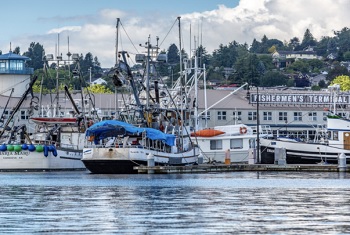
Upgrades coming to 105-year-old Fishermen’s Terminal
The Port of Seattle is set to breathe new life into their oldest facility, the Fishermen’s Terminal, which just celebrated its 105th birthday. Major upgrades and new resources are in the works as the Port plans to roll out a four-year, $23 million dollar project to improve the terminal. The Port says their objectives include developing new light industrial space and new jobs, advancing maritime industry innovation, and enhancing public awareness of the terminal and the fishing industry. >click to read<17:07

What caused the F/V Destination to sink? Coast Guard to release findings on Sunday
The Coast Guard on Sunday will release results of its investigation into why, without a mayday call, the Seattle-based Destination sank in 2017 in Alaska’s deadliest crabbing accident in more than a decade. Over the years, Coast Guard investigative reports into fishing disasters have repeatedly spotlighted the hazards of one of the nation’s most dangerous industries, sometimes helping to push reforms but often falling short of bringing major change. All six of the Destination crew were lost on Feb. 11, 2017, and the report is expected to offer the most likely scenario for what happened on a chill day in the Bering Sea when freezing spray was thought to have frozen on the boat. The report also will offer safety recommendations to try to prevent such losses of life. >click to read<15:46
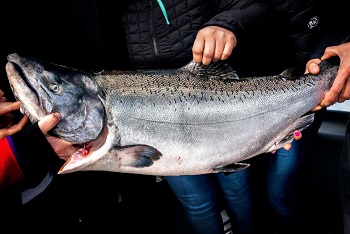
West Coast Fishermen cautiously optimistic for strong salmon season
After three difficult years when Chinook salmon population numbers were down and fishing opportunities were limited, commercial fishermen are hoping that the upcoming season will be better. “What we’re seeing is a better forecast of salmon in the ocean this year than we saw last year,” said Harry Morse, public information officer for the California Department of Fish and Wildlife, following a meeting with about 85 commercial and recreational anglers on Wednesday in Santa Rosa. “We’re cautiously optimistic.” >click to read<10:31
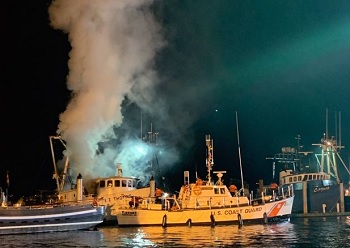
Newport firefighters, Coast Guard extinguish fire sparked by space heater
Firefighters spent hours early Wednesday morning extinguishing a blaze aboard a fishing vessel at Port Dock 5 on Southeast Bay Boulevard. Crews with the Newport Fire Department were dispatched just after 12 a.m. and found heavy smoke coming from the fishing vessel BJ Thomas. Firefighters tried to extinguish the fire using portable dock pumps, but were hampered by extreme heat from the fire, snowy conditions, and by having to force entry into the wheelhouse, fire officials said. >click to read<19:49
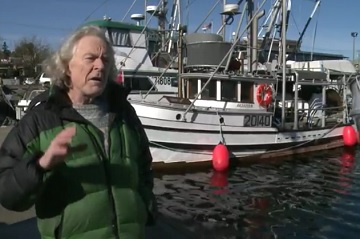
Salmon gill net fishing ban narrows focus to Columbia River
A push to ban non-tribal gill net fishing for salmon on the Columbia River is no shock to Pete Knutson, who has witnessed several similar attempts like it in his lifetime. “You can sell it to people who know nothing about the resource, and it sounds like a good idea,” Knutson said. Knutson owns Loki Fish Company, a business his entire family has helped build. It’s families like his that he’s worried about if the ban passes. “If you’re concerned about the resource, you want to keep those portions of the population that are living from the resource in business because they are the best stewards of the resource,” Knutson explained. >click to read<15:31

California could be held liable for whale entanglements
The Center for Biological Diversity is hopeful its lawsuit filed over whale and sea turtle entanglements is nearing its conclusion after a federal judge suggested she may find the California Department of Fish and Wildlife liable for the entanglements, a center spokesman said.,,, The two parties have until March 13 to work out their differences and report back to the judge. If no settlement is reached, the judge will issue a finding. >click to read<12:17






